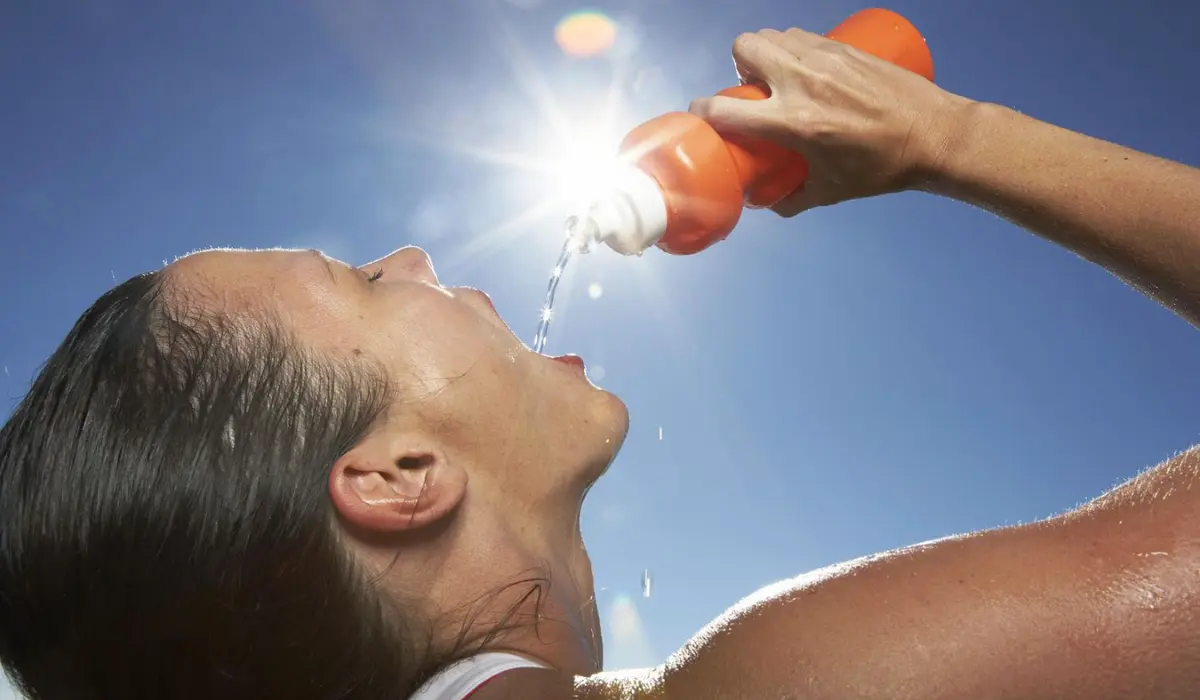Water makes up over 50 percent of the human body. It is essential for circulating blood, digesting food, removing waste, and regulating temperature. When the water content in the body drops, it leads to a condition called dehydration.
Even mild dehydration can sap energy and concentration. More severe dehydration is a serious medical condition that can lead to major health complications if left untreated. Being aware of dehydration, its symptoms, and associated dangers, and knowing how to manage it properly allows one to take prompt action to recover and prevent long-term effects.
What Is Dehydration?

Dehydration refers to an imbalance that occurs when the loss of body fluids exceeds the amount being taken in. The major causative factors include:
- Losing large volumes of fluid through vomiting, diarrhea, or heavy sweating
- Not drinking adequate amounts of water and fluids
- Certain medications like diuretics, laxatives, vasodilators
- Diseases like diabetes insipidus that affect kidney function
Some loss of water and electrolytes like sodium and potassium happens routinely through breathing, urine, and perspiration. Ordinarily, we replenish these losses through the fluids we consume as part of meals and drinks. Dehydration sets in when this balance is disrupted and more fluids are expelled than replaced.
There are a few types of dehydration depending on the relative levels of water and electrolytes lost:
- Isotonic – Where water and electrolytes are lost in equal proportions
- Hypertonic – Characterized by water loss exceeding electrolytes
- Hypotonic – Where more electrolytes are lost relative to water
What Are The Symptoms Of Dehydration?
The signs and symptoms of dehydration can range from minor to severe based on factors like the extent of fluid loss, health status, medications, and sweat loss. Paying attention to these cues helps address dehydration in the early stages before it progresses further.
Mild to moderate dehydration can cause
- Thirst and dry mouth
- Fatigue, tiredness and low energy
- Dizziness, especially on standing up
- Muscle cramps
- Headaches Decreased urine output and dark yellow urine
- Dry skin
More severe dehydration can result in
- Extreme thirst
- Fast heart rate and rapid breathing
- Lack of sweating despite the heat Little or no urination
- Low blood pressure
- Fever and chills
- Confusion and disorientation
- Sunken eyes, cheeks, and skin lacking elasticity
- Irritability and hallucinations in very serious cases
The Hidden Dangers of Dehydration
Neglecting early dehydration symptoms and allowing the condition to progress can lead to serious complications and health risks. Some key dangers include:
Heat Injury – Dehydration reduces sweating which is the body’s natural cooling mechanism. This makes you prone to developing heat cramps, heat exhaustion, or life-threatening heatstroke in high temperatures.
Kidney Stones – Urine normally helps dilute and flush out waste minerals in the body. Dehydration results in mineral-saturated urine that can crystallize into painful kidney stones.
Urinary Tract Infection – Lack of regular urination due to dehydration allows bacterial buildup in the bladder and increases UTI risk.
Seizures – Electrolyte imbalance and fluid loss can trigger seizures in children and adults. This emergency requires immediate medical care.
Hypovolemic Shock – This type of shock happens when severe fluid loss leads to inadequate blood circulation. It can result in organ damage and loss of consciousness.
Coma and Death – Extreme dehydration can lead to electrolyte disorders affecting the heart and brain function. Without urgent rehydration, it can be fatal.
Chronic Diseases – Recurring dehydration over time increases the risk of certain diseases like bladder cancer and kidney disease.
Physical Impairment – Moderate dehydration can temporarily reduce muscle endurance and aerobic performance. Severe dehydration greatly amplifies these effects.
Cognitive Decline – Even mild dehydration can impair mood, memory, alertness, and cognitive function. This can impact performance at work, school, or while driving.
How Do You Care for Dehydration?
Treatment of dehydration focuses on replacing lost fluids and electrolytes. The method depends on the severity of dehydration and key considerations are:
Mild dehydration
👉 Drink water, juices, sports drinks, coconut water, and soups to rehydrate.
👉 Limit exercise and sweat loss till recovered.
👉 Adjust doses/stop diuretics, laxatives, and steroid medications if causing dehydration.
Moderate to severe dehydration
👉 Seek medical attention for IV saline fluids and electrolyte balance monitoring.
👉 Hospitalization may be required for close supervision if organ function is impaired.
👉 Medications to manage dehydration complications like fever, pain, and cramping.
👉 No exercise until dehydration is resolved.
For all degrees of dehydration
👉 Start light, with sips of water or ice chips, and slowly progress your diet to clear liquids then regular foods.
👉 Focus on restoring fluids before resuming any strenuous activity.
👉 Weigh yourself regularly to monitor your hydration status based on body weight.
Prevention is key when it comes to dehydration. Staying adequately hydrated every day and drinking more during illness, exercise and heat minimizes risk. Recognizing early symptoms can help take corrective action before dehydration becomes a more serious concern.
Conclusion
Dehydration occurs when the body loses more fluid than it takes in, due to causes ranging from illness to strenuous activity. Even mild dehydration can be detrimental while severe dehydration constitutes a medical emergency.
Knowing the symptoms and health dangers allows for prompt, appropriate treatment. With proper management of dehydration and preventative hydration habits, the risks and long-term effects of this common condition can be minimized.

